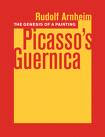
The Boy in the Striped Pajamas is one of those movies, like Schindler’s List, that makes evil disturbingly palpable. The protagonist is a young boy, Bruno, whose father administers a Nazi WWII concentration camp. Their family moves to a house not far from the camp. Naturally, the boy is curious about the camp and the people there. And his parents’attempts to keep him confined to their house (or, better, prison) only manages to fuel his fascination with what is going on in the ‘outside world.’
Bruno is a source of freedom, innocence and hope in the midst of a very dark story set in one of the more disturbing episodes of world history. Throughout the film, his vibrant and carefree spirit drew me in as I gradually, seemingly naturally, became his advocate. When his parents, and especially the hired tutor, discourage Bruno’s inquisitiveness, restrict his imaginative play, and refuse to let him play in the forested area around their home, I am forced to choose sides.How can I not cheer for the winsome Bruno who is forced to grow up too quickly, but at the same time is sheltered from the horrific realities of living in a time of war.
When Bruno found a way to escape from the house, I could not help but feel a thrill of excitement and hope. Now, the stifling fear can really be left behind. And when he finds the concentration camp, and meets Schmuel, a young Jewish boy his age (the only boy his age that he can call a friend), how could I not want him to bring food to the famished Schmuel. How could I not want Bruno to play with Schmuel through that terrible barbed-wire fence. What was I thinking?Perhaps I thought that this relationship could bring some kind of redemption to the horror and tragedy of genocide. Perhaps I wanted to the boys to at least have friendship for they both, in their different ways, had very little of life and happiness. Whatever the reason, and it sure felt like a good reason, I wanted their friendship to grow.
On the day that Bruno came with a shovel and a sandwich, and he offered to help Schmuel to find his father (who he had not seen for days), I wondered if something unspeakable were about to happen. And yet, I cheered when Bruno put on the striped uniform, and I cheered when he slipped under the fence. I could not help it because, I thought, here is an image of reconciliationand here is hope that injustice will not continue forever. I could not help it, but the moment he was on the other side, I regretted it. The boys ran through the camp, and searched in several huts, but, before long, they were caught up and corralled by German soldiers in a forced march.The marched in the middle of the group unable to get out and unable to see where they were going. They marched into a room where they were forced to take their clothes off. They marched into a room where they were pushed even closer together. Then, the soldiers shut the large metal door. I regretted that I ever wanted Bruno to be friends with Schmuel, let alone crawl under the fence, but I had wanted that. I had cheered him to his death.




No comments:
Post a Comment